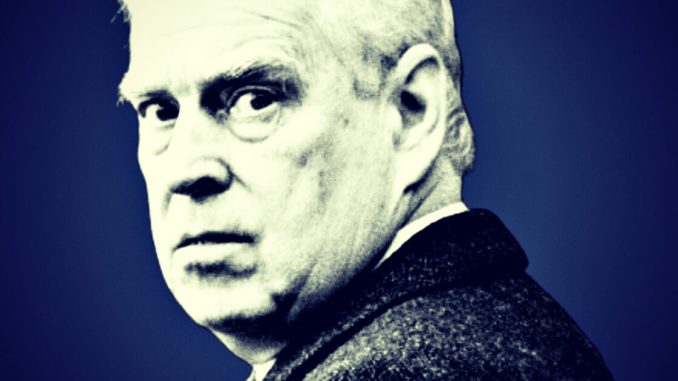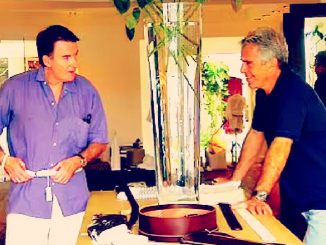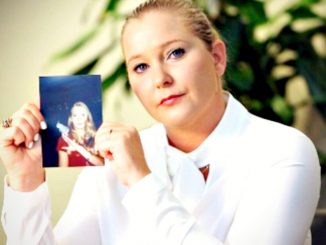
Andrew’s fall from grace has been astonishing, and now he is banished to Norfolk.
Published October 31, 2025
Prince Andrew, once the Duke of York, is facing what commentators are calling the final and most humiliating chapter in his royal downfall. According to reports, King Charles III has formally stripped his brother of the title “Prince” and ordered him to vacate Royal Lodge in Windsor Great Park — the residence he has occupied for decades.
The disgraced royal will reportedly be moved to a smaller property on the Sandringham Estate in Norfolk, effectively cutting him off from the royal family’s daily life and public engagements. He will now be known as Mr. Andrew Mountbatten-Windsor, marking a historic and symbolic erasure of his royal identity.
⚖️ Backdrop: Epstein Scandal and Public Backlash
Andrew’s troubles began after his association with the late financier and convicted sex offender Jeffrey Epstein came to light. His disastrous 2019 BBC Newsnight interview — where he failed to convincingly deny allegations and showed little empathy for Epstein’s victims — resulted in his forced withdrawal from royal duties.
Despite a multimillion-pound out-of-court settlement with accuser Virginia Giuffre, the damage to his reputation proved irreversible. Since then, Buckingham Palace has worked to distance the monarchy from the scandal.
The latest action — removing his title and evicting him from Royal Lodge — is seen as King Charles’s decisive move to protect the monarchy’s integrity.
🏰 Life in Exile: From Windsor to Norfolk
According to The Gateway Pundit and supporting YouTube clips from The National Desk and GB News, Andrew has been told to relocate to a modest residence on the Sandringham Estate. This will place him over 100 miles away from Windsor and London — effectively isolating him from family events and royal visibility.
Royal observers describe it as a soft exile: not an official banishment, but a message that he is no longer welcome in the heart of royal operations.

From now on, the former Duke of York (pictured with the late Queen) will simply be known as Mr Andrew Mountbatten Windsor – losing even his birth title of prince
From beyong the grave, Virginia Roberts Giuffre has had her say.

Andrew, 65, has also agreed to surrender his lease on Royal Lodge (pictured) and will be banished to a private home on the monarch’s Sandringham Estate in Norfolk

Buckingham Palace made it clear that His Majesty had the support of his family, including the Prince of Wales

 Implications: What Prince Andrew’s Fall Means for the Monarchy and Beyond
Implications: What Prince Andrew’s Fall Means for the Monarchy and Beyond
1. A New Standard of Accountability
For centuries, the British monarchy operated on quiet internal discipline — family scandals were managed behind palace walls. But King Charles’s decision to publicly strip his brother of titles and privileges signals a dramatic shift.
This move communicates that royal blood no longer guarantees immunity from moral or reputational consequences. The monarchy, facing modern scrutiny, is now treating its members more like public officials than untouchable icons.
2. Restoring Institutional Credibility
The royal family’s image has been deeply bruised by the Epstein scandal. By distancing the Crown from Andrew, King Charles seeks to reinforce the monarchy’s moral authority and prevent its institutions from being tainted by personal disgrace.
It’s also a move to reassure British taxpayers that the monarchy won’t shield those who bring shame to the Crown.
3. Shifting Power Within the Royal Household
Andrew’s exile consolidates power around King Charles, Queen Camilla, Prince William, and Princess Catherine — the faces of the monarchy’s future.
It effectively removes any chance of a comeback for Andrew, and it sends a warning to other royals: the King’s tolerance for scandal is at zero.
Observers see this as part of Charles’s long-term plan to “slim down” the monarchy into a smaller, cleaner, more controlled public institution.
4. Public and Global Perception
Internationally, the move helps the Palace distance itself from the Epstein network and the growing conversation about elite impunity.
In the U.K., polls show mixed feelings: while many welcome the King’s decisiveness, others criticize the action as a “too-late correction,” given how long Andrew retained privileges after the scandal broke.
Still, the demotion has restored some measure of public trust, portraying the monarchy as capable of self-correction.
5. A Warning to Other Elites
Beyond the royal family, Andrew’s fall has symbolic weight. It shows that reputation, not lineage, defines authority in the digital age.
The coverage across independent media, from The Gateway Pundit to YouTube commentators, highlights a public hunger for transparency — even from the world’s most exclusive institutions.
This event reinforces a cultural shift: no one is too powerful to fall when public opinion turns.
6. Andrew’s Personal Future
Without royal duties or status, Andrew’s prospects are uncertain. Reports suggest he will live in quiet isolation in Norfolk, under discreet security, with his personal fortune as his only cushion.
For a man once close to world leaders and military command, this is both punishment and a statement — a life sentence of irrelevance.
 Overall Takeaway:
Overall Takeaway:
Prince Andrew’s journey from royal privilege to personal disgrace stands as one of the most dramatic downfalls in modern monarchy. Once a symbol of royal service and status, he now represents the cost of moral failure and the limits of inherited power in a new age of transparency.
By removing his title and sending him into quiet isolation, King Charles III has not only protected the Crown but also set a precedent for future generations of royals — that honor must be earned, not merely inherited. It is a defining moment that signals a shift in how the British monarchy confronts scandal, reminding the world that even those born into privilege can be stripped of it when accountability demands it.
In the end, “Mr. Andrew Mountbatten-Windsor” is more than a changed name. It is a symbol of the monarchy’s struggle to evolve, to survive scrutiny, and to remain relevant in a time when truth travels faster than tradition. His fall is both personal tragedy and public reckoning — a royal reminder that power, without integrity, inevitably collapses.
SOURCES: THE GATEWAY PUNDIT – PRINCE NO MORE: Disgraced Andrew Mountbatten Windsor Is Cast Out To Live in Norfolk, Away From the Royal Family
DAILYMAIL ONLINE – Sensation as the King strips Andrew of his Prince title and forces him out of Royal Lodge as punishment for Epstein scandal: Mr Mountbatten Windsor is sent to live in Norfolk in final humiliation
SKY NEWS – Virginia Giuffre’s brother wants Andrew investigation – as poll reveals how Britons feel about King’s action






Be the first to comment